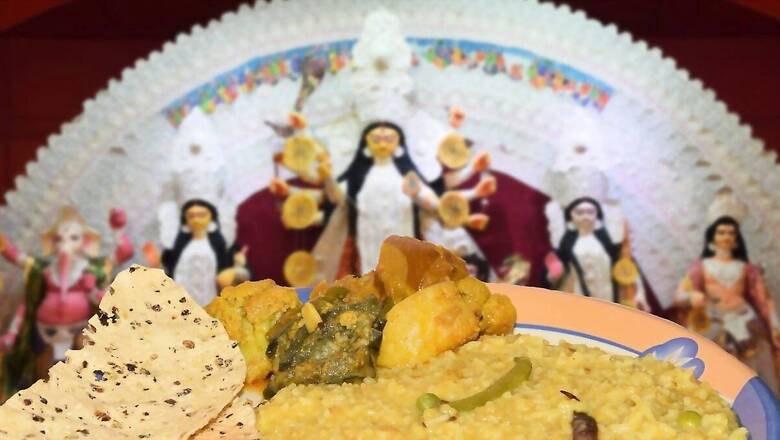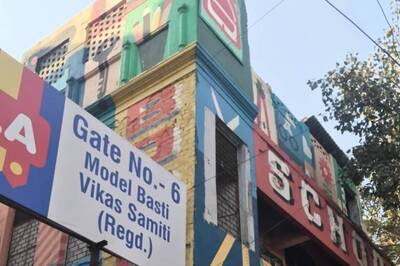
views
Navratri is a nine-day festival dedicated to the nine avatars of Goddess Durga, primarily focused on expressing devotion. Celebrations feature beautiful pandals, intricate idols, and various rituals, with many devotees observing fasts as a form of reverence.
Some follow a Sattvic or vegan diet, while others fast each day, breaking their fast only after worshipping the Goddess. This period is marked by deep spiritual significance and community festivities, Navratri 2024 will be celebrated from October 3 to October 12. The festival culminates with Dussehra, also known as Vijaya Dashami.
As Navratri 2024 is just around the corner, here are tips on what and what not to eat, if you are planning to observe fast during the auspicious festival this year.
Navratri 2024 Fasting: What To Eat And What To Avoid?
1. As consumption of regular wheat is not allowed during Navratri fasting, one can eat kuttu ka aata (buckwheat flour), singhare ka aata (water chestnut flour), and rajgira ka aata (amaranth flour) to make rotis or parathas.
2. Those who prefer rice can replace their normal staple with samai ke chawal or samvat ke chawal (barnyard millet) to make khichdi, dhoklas, or kheer.
3. Sabudana (tapioca pearl or sago) can also be consumed during Navratri fasting.
4. All types of fruits can be consumed during the fasts. Some devotees even rely on just fruits and milk for all nine days.
5. Normal table salt is not eaten during Navratri days. Instead, one can replace it with sendha namak (rock salt) for cooking fasting dishes.
6. In the case of spices, cumin, cumin powder, black pepper, green cardamom, cloves, cinnamon, black peppercorns, tamarind, ajwain, and nutmeg can be used.
7. When consuming vegetables, devotees often opt for sweet potatoes, arbi, lemons, raw or semi-raw pumpkin, spinach, tomatoes, cucumber, carrots, and others.
8. Dairy products like milk, yogurt, and paneer (cottage cheese) are allowed during the fasts.
9. Various protein-rich nuts, seeds, and berries are recommended for fasting. While dates are a major part of the Navratri diet, flax seeds, chia seeds, sunflower seeds, almonds, pistachios, walnuts, etc., are also healthy options.
10. However, any sort of fast food, canned food, or dishes prepared with onion or garlic should be strictly avoided.
11. Non-vegetarian food, eggs, alcohol, aerated drinks, and smoking are also strictly prohibited.
12. Devotees should even avoid consuming lentils, rice flour, cornflour, maida (all-purpose flour), semolina, or legumes.
Note: Instead of large meals, it is advisable to have multiple small meals throughout the day to retain energy and strength.




















Comments
0 comment